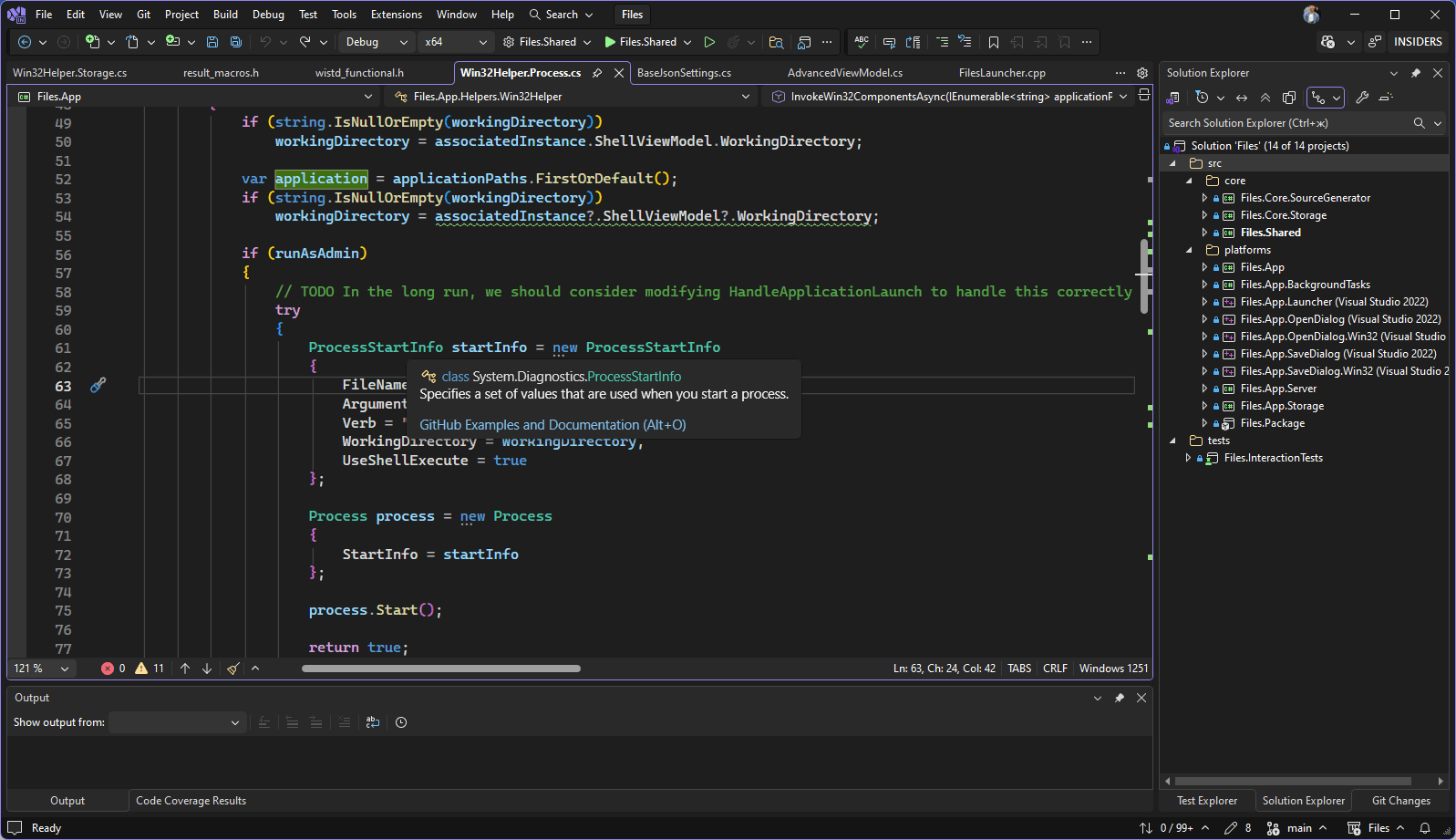Welcome to the ninth part of our digest on news and events in the .NET world! We've got plenty of updates this time. This time, we talk about the latest previews and RC versions of .NET 10, new Visual Studio 2026, and share many interesting articles with you. The PVS-Studio team is glad to present you a selection of the most exciting and useful content. Let's go!

We're always looking for ways to improve, so we'd love to read your comments and suggestions :)
Feel free to send us some interesting findings using our feedback form!
You may have noticed that we missed one of the .NET Digests, which was supposed to come out in September. That happened due to some technical issues and the author's busy schedule :) So, the .NET Digest #9 highlights the news we missed. In order not to increase the volume, let's cover only the most intriguing and major events. In the future, we try not to delay our digests.
Today's digest covers .NET 10 previews and RC versions, Visual Studio 2026, and many interesting articles.
.NET 10 Preview 6 is now available!
.NET 10 Preview 7 is now available!
Announcing .NET 10 Release Candidate 1
Announcing .NET 10 Release Candidate 2
Since the last .NET Digest, Microsoft has released several previews and release candidates of .NET 10. Now we can only wait for the full .NET 10 release scheduled for mid-November. Let's take a look at some new features in the preview and RCs:
Of course, we're going to prepare an article about the new .NET 10 features—and we'll publish it along with the official release.
By the way, we've already discussed all the new C#14 features in the article "What's new in C# 14: overview."
Visual Studio 2026 Insiders is here!
Visual Studio 2026 Insiders is now available. Its developers have integrated AI into all workflows, enhanced performance, and redesign it, which makes the IDE lighter and more streamlined.

So freshy, doesn't it?
.NET STS releases supported for 24 months
Microsoft extends the support period of .NET Standard Term Support (STS) releases from 18 to 24 months. The change takes effect starting with .NET 9. Just as a reminder, LTS releases continue to receive support for three years.
Performance Improvements in .NET 10
Welcome the Stephen Toub's annual monstrous article on performance boosts in .NET! Today, the author explores improvements to collections, GC, Native AOT, inlining, JIT, LINQ, and other.
Announcing Sponsorship on NuGet.org
Microsoft announces new feature: NuGet.org package authors can now add sponsorship and leave links to receive sponsorship support from users.
Preparing for the .NET 10 GC (DATAS)
Do you remember DATAS implemented in .NET 9 by default? Quick recap: DATAS is a garbage collector function in .NET to adjust the heap size to the actual app's needs. Since .NET 10 is an LTS release and many developers gain the opportunity to leverage DATAS, .NET developers would like to remind everyone how best to get started with the new technology.
Octoverse: A new developer joins GitHub every second as AI leads TypeScript to #1
GitHub has published its 2025 stats. Among the news, TypeScript climbed to the #1 spot among programming languages, while C# is holding in fifth place.
How I Reduced API Response Time by 70% in a Large .NET Project
You all know how API response time hurts profits. Here's how the author sped up their .NET project.
Java vs C# - Part 1 & Java vs C# - Part 2
This is a good article comparing C# and Java. The author goes over the similarities and differences between two languages and discusses which one is better. This is not a new article, but the author has updated it, highlighting the latest language changes.
Demystifying async void in C#: Why It's Dangerous and When It's Okay
Many devs know that using async void is a sign of bad manners. This article is about that. Still, the author also explains the few cases where async void actually makes sense.
When AI Writes Code, Who Secures It?
The article focuses on security flaws in the era of AI development and vibe coding. The author discusses recent research showing vulnerabilities in AI-generated code and suggests tools for managing risks and refining security in AI-driven systems.
By the way, PVS-Studio static analyzer can help here too. It doesn't matter whether the code was written by a developer or an AI—it'll detect bugs and potential vulnerabilities all the same.
Logging Like a Pro — Serilog + OpenTelemetry in .NET
The author discusses the use of Serilog and OpenTelemetry to improve logging in .NET applications. The author explains the problems with traditional logging, demonstrates the advantages of structured logging with Serilog, and adds that OpenTelemetry helps connect logs in a distributed system.
Series: Exploring the .NET 10 preview
.NET 10 is just around the corner, and Andrew Lock is here with a series of articles dedicated to the changes and new features in .NET 10 previews. Running a single .cs file, extension members added in C# 14, improvements to source code generators, and many more topics are highlighted in these articles.
Using and authoring .NET tools
Do you want to know more about .NET tools? This article comes to help—how to develop them, what difficulties you may encounter, as well as useful tips on working and testing—you can find answers here.
Understanding the worst .NET vulnerability ever: request smuggling and CVE-2025-55315
This article covers a serious .NET vulnerability rated 9.9 on the CVSS. Andrew Lock talks about how such vulnerabilities work and why attackers exploit them. Most importantly, how this one was fixed and what steps you can take to stay protected.
.SLN is dead. Long live .SLNX!
Not long ago, a new file format for solutions, .slnx has arrived to replace the good old .sln. In this article, you can spot what advantages the new format brings to the dev world and why Microsoft decided to introduce it after so many years.
GameDev Guardian: static analysis and Unity
The author shows how PVS-Studio static analyzer can be a guardian of Unity development in term of security and optimization via dedicated diagnostic rules for Unity.
Since the last .NET Digest, the PVS-Studio team has published numerous articles on checking open-source C# projects.
Here's the full list:
Visual Studio 2015 Retirement: Support reminder for older versions of Visual Studio
Microsoft officially ended support for Visual Studio 2015 on October 14, 2025. Have you used this version of Visual Studio? Which IDE did you switch to afterward?
PVS-Studio 7.38: new C++ analyzer core, user annotations in Java, enhanced taint analysis, and more
These two PVS-Studio releases bring many interesting updates: a new core for the C/C++ analyzer, a user annotation mechanism in Java, compilation monitoring in Visual Studio Code, support for the .slnf extension, and improved coverage of the OWASP Top Ten 2021 by the Java analyzer.
New C# diagnostic rules:
You can visit this page to get a trial key and try the latest version of the analyzer.
Thank you for reading! See you soon! Feel free to share your thoughts and findings with us!
0